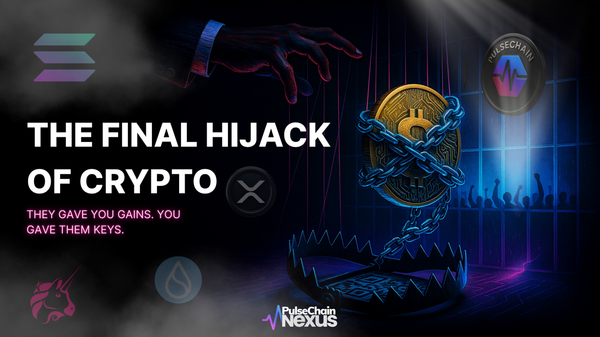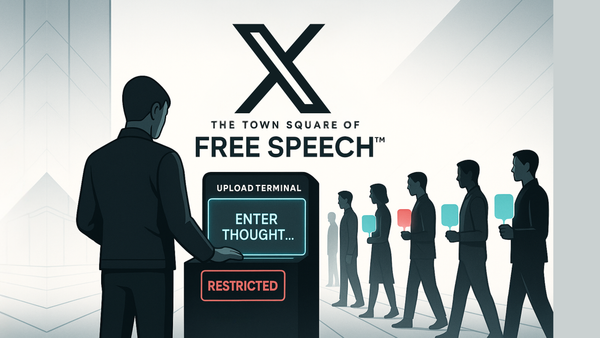The Case That Never Was: How HEX, PulseChain, and Free Speech Just Body-Slammed the SEC
This isn’t just a legal win—it’s a historic marker. HEX, PulseChain, and PulseX now carry a unique badge of regulatory clarity that almost no other cryptocurrency can claim.

They came for the code. They tried to sue software. They targeted a founder who’s never backed down from a fight—and they lost.
Today marks the moment the SEC officially walked away, tail-between-legs, from its entire case against Richard Heart, HEX, PulseChain, and PulseX. A moment not just of vindication, but of absolute, searing victory for real DeFi, for open-source code, and for the freedom to build without permission.
No Settlement. No Surrender. Total Victory.
This wasn’t one of those quiet cases where the SEC shrinks away and drops the charges without explanation. This was a full dismissal by the court of every single claim the SEC brought. And when the deadline passed to amend the complaint, the SEC simply... didn’t.
"The SEC does not intend to file an amended complaint," they wrote, retreating into the fog.
This isn’t just a legal win—it’s a historic marker. HEX, PulseChain, and PulseX now carry a unique badge of regulatory clarity that almost no other cryptocurrency can claim. In a digital battlefield where many projects remain in legal limbo, or worse, settle out of fear—Richard Heart's creations stood tall, endured the storm, and now emerge untouchable.
They Tried to Sue the Unsueable
What makes this case especially absurd is what was at stake: code. The SEC literally argued that open-source code—lines of software—could be treated as a person’s alter ego. Let that sink in.
They weren’t just trying to pin a crime on a man. They were trying to criminalize software. They came for the idea that freedom can be expressed in math.
Had this precedent stood, the damage would have echoed across the Internet, gutting the very foundation of open-source software and digital speech. Billions in innovation would have been at risk. Developers worldwide would have been chilled into silence.
But the judge didn’t buy it. The case was tossed. Every single claim, dismissed.
DeFi, Unchained
This is more than a win for HEX and its surrounding ecosystem—it’s a win for the idea of crypto. The real kind. The kind that says: no middlemen. No banks. No custodians. Just code, immutable and free.
This wasn’t just about one founder or one community. It was a standoff between old-world control and new-world autonomy—and the new world just held the line.
We now know that:
HEX, PulseChain, and PulseX are safer to work with than most.
The SEC’s attempt to strong-arm DeFi has failed, in court.
Open-source software is still protected as speech. For now.
The Man Who Wouldn’t Kneel
Richard Heart didn’t run. Didn’t hide. Didn’t bend the knee.
For years, he’s been mocked, misrepresented, and gatekept by centralized crypto platforms, legacy finance, and regulators alike. But through it all, he’s stuck to the same principle: code is law. And when the state tried to break that law, it was the state that fell.
Love him or hate him, today you owe him thanks. Because if the SEC had succeeded, you wouldn’t just have fewer coins to trade—you’d have fewer rights to build.
The Signal in the Noise
The SEC may try again. Different faces, different angles, different coins. But this one will stand forever in the court record as a clean, unqualified loss.
So if you’re building in this space, take heart (pun intended). You just got cover fire. Real DeFi just found a shield. The war isn't over, but this was a major battle—and we won.
Welcome to the other side.
Think outside the bank. Build beyond permission. And never forget: time in the market beats timing the market.
Written in honor of this day by the PulseChain Nexus. Share it. Quote it. Remix it. Just don’t settle for less.
Veritya Thalassa





